UPEI researcher helps create new Canadian 24-hour movement guidelines
A UPEI researcher is spreading the word about the new 24-hour movement guidelines for Canadian adults that he helped create.
The new guidelines were released Thursday, and give Canadian adults direction on what a healthy 24 hours looks like, in terms of physical activity, sedentary behaviour and sleep.
"These new guidelines focus on how to make the whole day matter," said Travis Saunders, an assistant professor in applied human sciences at UPEI.
"The other thing that's really exciting is that they also incorporate recommendations for light physical activity, so they really focus on how we can improve our health by focusing on the whole day."

Why sleep matters
Saunders said previous guidelines focused more specifically on physical activity, even though physical activity, sedentary behaviour and sleep all interact.
"If you're physically active, you're probably going to sleep better that night. If you're not sleeping enough, you're not going to feel like doing a workout. If you're using screens late at night, we know that reduces your sleep," Saunders said.
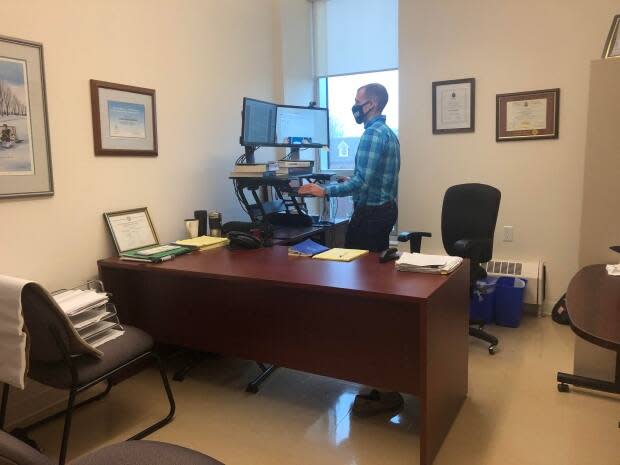
"That's why we've packaged these all together — because not only does each of these behaviours impact our health, but they all affect our ability to do those other behaviours."
Too much sitting
Saunders' section of the report focused on sedentary behaviour, which he described as "any time we're sitting down and burning very few calories."
The stakes are high: "Research has shown that people who spend more time being sedentary have higher risk of death, higher risk of things like heart disease and diabetes, high risk of some cancers, higher risk of depression, lower cognitive function."
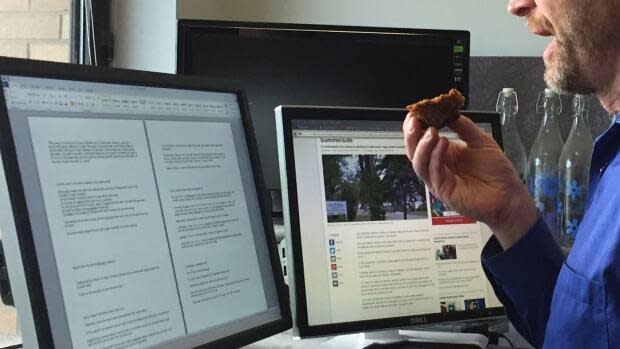
But there are things you can do to counteract that, short of always standing upright or making sure you are moving all the time.
"We've also seen that just simply reducing or breaking up your sedentary time can also lower some risk factors for heart disease and diabetes," Saunders said.
"So it really has a large health impact — and especially screen-based sedentary times seem to have a very important impact on our health."
8 hours or less
Saunders said the new guidelines recommend that Canadian adults get eight hours or less of sedentary behaviour each day, including three hours or less of recreational screen time, and that they sit for shorter periods of time.
"Rather than sitting for two or three hours at a stretch, try and break that up. That seems to be very beneficial," Saunders said.
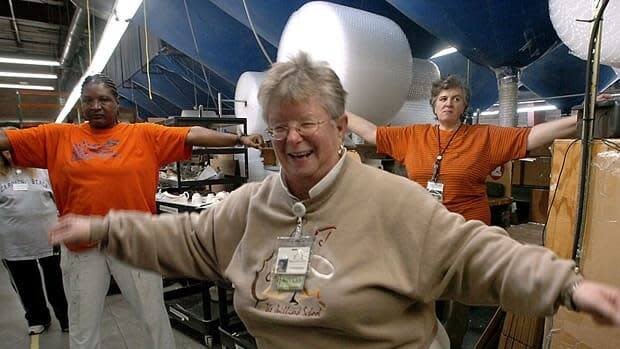
"Using things like standing desks, rather than just sitting all day, you can alternate between sitting and standing," Saunders said.
"These new guidelines specifically recommend that we do more light activity, including standing throughout the day."
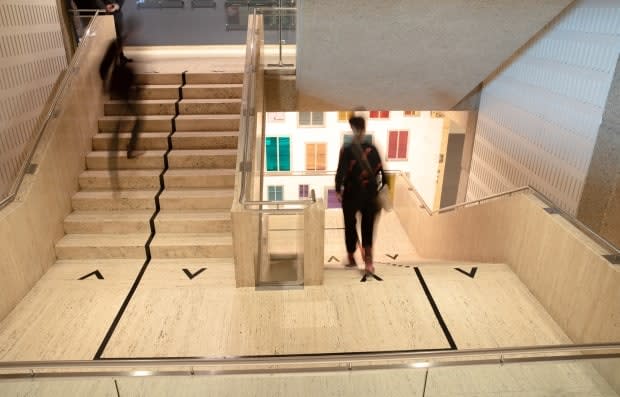
Saunders said Canadians are also encouraged to look at commuting by active transportation, using the stairs instead of an elevator, or going for a walk instead of choosing time in front of a screen.
Some questions Saunders recommends as you look at your day: 'Where am I spending most of my time sitting down, and where am I spending time in front of a screen, and how could I make that time more active?"
Changing behaviour
UPEI Masters student Kevin Douillette worked on the research on sedentary behaviour. He said Canadians don't necessarily understand the impact of too much sitting.
"With the previous physical activity guidelines, where you only needed so many hours of physical activity, there wasn't any baseline for sedentary behaviour," Douillette said.
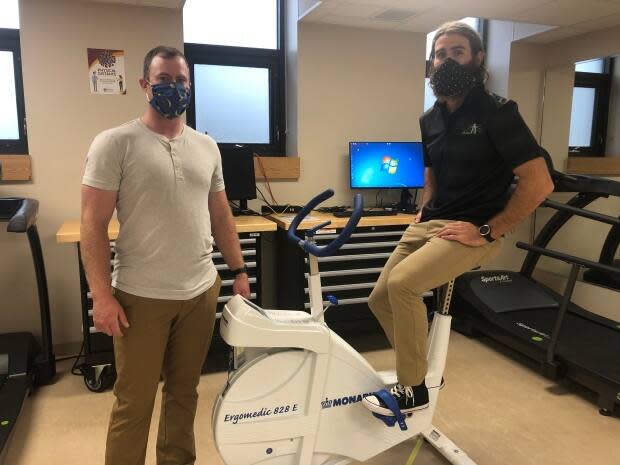
Travis McIsaac is a research assistant who also worked on the research.
"It's not always easy to change behaviour, but with increased knowledge, maybe it coaxes people into reexamining some of their habits and some of the ways where they kind of default to sedentary behaviour," McIsaac said.
"Hopefully if they learn a little bit more about it, they can look for ways to get a little bit more physically active."
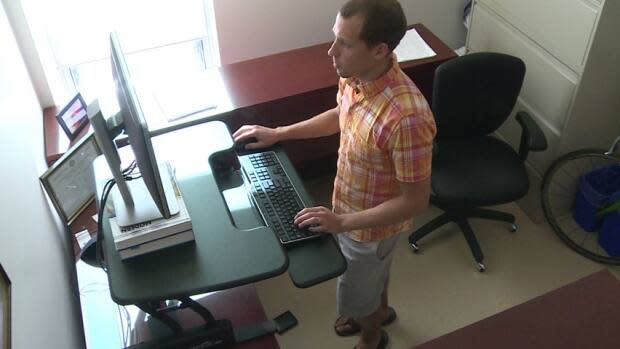
Saunders said it was exciting for him and the other researchers at UPEI to be part of the two-year project.
More from CBC P.E.I.:


